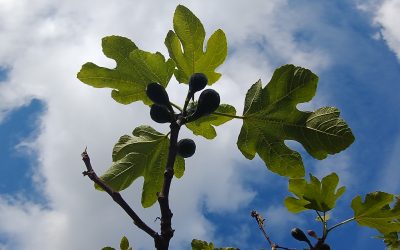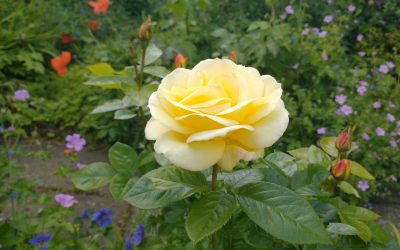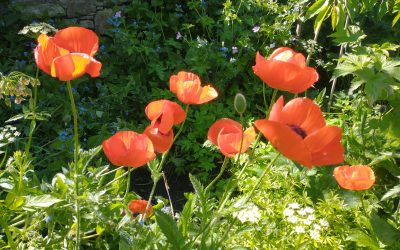This week I tweeted a link to my TLS review of pianist Evgeny Kissin’s book, ‘Memoirs and Reflections’. Some readers told me that the Times paywall had barred them from reading the whole review, so for anyone didn’t have a chance to buy the TLS, here is the review:
‘A neuroscientist once told me that few tasks are neurologically more complex than playing virtuoso piano music. Most pianists would agree that it is fearsomely difficult; occasionally, however, someone comes along for whom it all seems easy. Such is Evgeny Kissin, whose mastery of Chopin, Liszt and Rachmaninov has had audiences queuing round the block since, as a radiant twelve-year-old, he played both Chopin piano concertos in a sensational Moscow concert. In 1997 he was the first pianist honoured with his own Proms solo recital at the Royal Albert Hall. It drew the largest audience yet seen at the Proms, and included an hour of encores. Fellow pianists often attend his concerts to marvel at the accuracy and security of his technique.
It would be of the deepest interest to learn how it feels to be such a pianist, but perhaps it is hardly surprising to find that his gift remains mysterious even to him. Memoirs and Reflections (“compiled and edited by Marina Arshinova”) is a tantalizing collection of snippets which feel like sparks thrown out from the fire rather than an account of the fire itself. As Kissin says in the preface, “the book is not only and indeed, not so much about me as about many other people!” About these other people he is always courteous and appreciative, but his portraits of family members, school teachers and colleagues such as the conductors Herbert von Karajan and Evgeny Svetlanov are slight, and many of his anecdotes would benefit from more historical context. He enthuses about Tikhon Khrennikov’s charm, for example, (“unfailingly the atmosphere [in his home] was one of warmth, cordiality, goodness and love”), without mentioning that Stalin’s appointee as Secretary of the Union of Soviet Composers was feared by many.
Kissin was born in Moscow in 1971 and started learning the piano at the age of two. It has been noted that while his playing is exceptionally articulate, Kissin is a reluctant speaker. He was a quiet, intense child, often ill with pneumonia in the winters. He enjoyed the company of older people but was not drawn to play with other children, and confesses that he often practised the piano as an escape from socializing. In some ways, he has been carefully protected – even as an adult he was accompanied on many of his concert tours by his mother and the only piano teacher he has ever had, Anna Pavlovna Kantor – yet he has had to live in the full glare of international adulation. He recounts that when Kantor first laid eyes on him, she “immediately fell in love with me for all her life”. She later moved in with the Kissins, emigrating with them in 1991 to New York and later to London and Paris.
“Never in my life have I striven for fame, and in my youth I even found it a painful burden”, Kissin writes. Touring internationally in his twenties, he sought to escape “a sense of routine”. He quotes with gentle amusement from some of the sillier fanmail he receives. The book opens with an extraordinary quotation from a Russian psychotherapist who glimpsed the young Kissin riding a bicycle and realized that “rushing towards me was some fantastic Being, living beyond the bounds of any words, definition or categories, ages and so on. This was a Being of amazing beauty . . . ”. With quiet detachment, Kissin seems to accept that it is simply his fate to arouse such feelings.
Longstanding fans will probably feel that they have read much of this material elsewhere. It does not help that some of the anecdotes seem stilted in translation, or that the book seems hastily put together: there are some inexcusable typos (a photo of the American pianist Van Cliburn is captioned “Vain Kliburn”; the conductor Zubin Mehta is “Metha”) and some non-explanatory footnotes (“The key of the dominant is opposite to the key of the tonic”). There is a select discography, but no index.
Kissin is now forty-five, a committed Israeli citizen, and recently married, though he does not share his wife’s name with us. (It is Karina Arzumanova; the pair have known each other since childhood.) He appears to have reached a stage in his life where he needs to contemplate his talent from a greater distance. If being a world-famous pianist was something that happened to him rather than something he chose, it becomes clear that what he does now choose is to celebrate his Jewish heritage. He reads extensively in Yiddish literature and offers recitations of Yiddish poetry alongside performances of piano works by little-known Jewish composers. Having himself composed a little in childhood, he has started once again – he mentions some chamber works and a cycle of piano pieces including the delightfully named “Dodecaphonic Tango”– and is eager to see where this path will lead. These activities clearly bring him a new and valuable sense of mission and agency.’
Times Literary Supplement, 7 July 2017




0 Comments